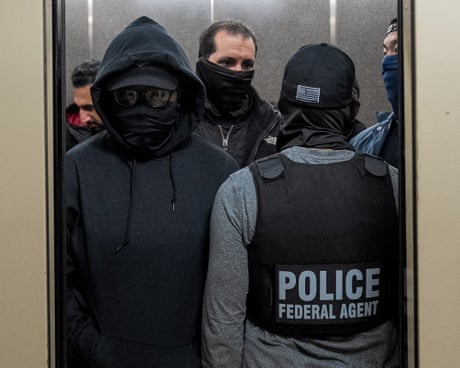
The FBI spied on a private Signal group chat used by immigrant rights activists in New York City who were organizing "courtwatch" efforts to monitor federal immigration court proceedings. Records obtained by a government transparency non-profit reveal that the FBI, in conjunction with the NYPD, accessed conversations within this encrypted group.
The FBI characterized the activists as "anarchist violent extremist actors" in a report distributed to other law enforcement agencies, despite the courtwatch efforts being nonviolent. The FBI report, dated August 2025, detailed the group's discussions on improving activities near federal facilities and collecting media of law enforcement officers and court interiors.
It also stated that a participant discussed how to gain access to federal courtrooms and alleged that an individual within the group instructed protest participants to use violence against law enforcement. However, the report did not provide specific evidence or details to support these claims of violence or the "extremist" label.
The method by which the FBI gained access to the encrypted Signal chat remains unclear, as the app is known for its end-to-end encryption, typically requiring direct inclusion in the chat, a participant's cooperation, or access to an unlocked device. The FBI described its source as having "excellent access" and framed the report as a warning about extremist actors.
While the NYPD stated the document referenced a broader counterterrorism investigation involving potential criminal activities like weapons training and violence, the FBI's report did not include these specific claims. Activists and civil liberties advocates condemned the surveillance, drawing parallels to past FBI actions against civil rights and Muslim communities.
They argued that observing immigration court hearings is a legal and civic act, not a terrorist threat, and that such surveillance aims to intimidate and suppress democratic freedoms. The Department of Justice has stated its commitment to restoring integrity to immigration courts and enforcing federal immigration law.